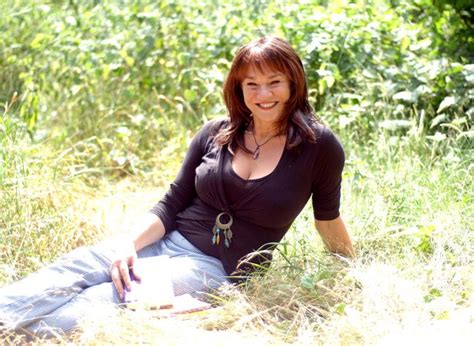A Quote by Denis O'Hare
I guess the big thing to say about 'Pig Farm' is that none of us knows if it works, and we're going in blind. It's in the tradition of 'Urinetown,' kind of - but that's a pretty small tradition. It's possible that it can fail.
Related Quotes
Tradition is only democracy extended through time; it may be defined as an extension of the franchise. Tradition means giving votes to the most obscure of all classes, our ancestors. It is the democracy of the dead. Tradition refuses to submit to the small and arrogant oligarchy of those who are merely walking about. All democrats object to men being disqualified by accident of birth; tradition objects to their being disqualified by accident of death. Democracy tells us not to neglect a good man's opinion, even if he is our father.
We may be thankful that frightened civil authorities ... have not managed to eradicate from the country the tradition of the possession and use of firearms, that profound and almost instinctive tradition of Americans. Luckily for us, our tradition of bearing arms has not gone from the country, the tradition is so deep and so dear to us that it is one of the most treasured parts of the Bill of Rights - the right of all Americans to bear arms, with the implication that they will know how to use them.
You can either be in the Ron Paul tradition and say there's nothing wrong with heroin and cocaine, or you can be in the tradition that says, 'These kind of addictive drugs are terrible; they deprive you of full citizenship, and they lead you to a dependency which is antithetical to being an American.'
The urge to break with a tradition is only appropriate when you're dealing with an outdated, troublesome tradition: I never really thought about that because I take the old-fashioned approach of equating tradition with value (which may be a failing). But whatever the case, positive tradition can also provoke opposition if it's too powerful, too overwhelming, too demanding. That would basically be about the human side of wanting to hold your own.
God is not good, or wise, or intelligent anyway that we know. So, people like Maimonides in the Jewish tradition, Eboncina in the Muslim tradition, Thomas Aquinas in the Christian tradition, insisted that we couldn't even say that God existed because our concept of existence is far too limited and they would have been horrified by the ease with which we talk about God today.
The communal experience of sharing something, and being part of it, and watching something visually striking, that's what film is all about. Seeing everything on a big screen, and to be able to see something phenomenal in that way, and being moved by it. We have kind of lost the tradition of that, and we're not nurturing the next generation in that tradition, and maybe that's why they're not turning up.
Those who feel guilty contemplating "betraying" the tradition they love by acknowledging their disapproval of elements within it should reflect on the fact that the very tradition to which they are so loyal—the "eternal" tradition introduced to them in their youth—is in fact the evolved product of many adjustments firmly but delicately made by earlier lovers of the same tradition.




































